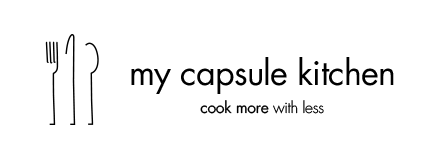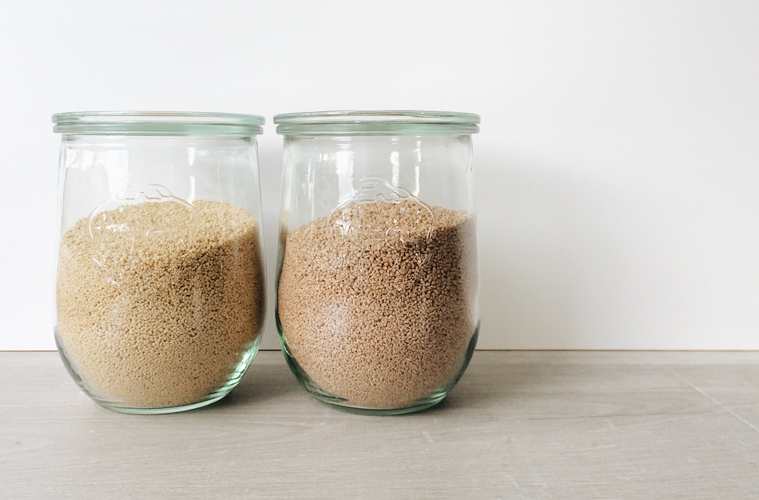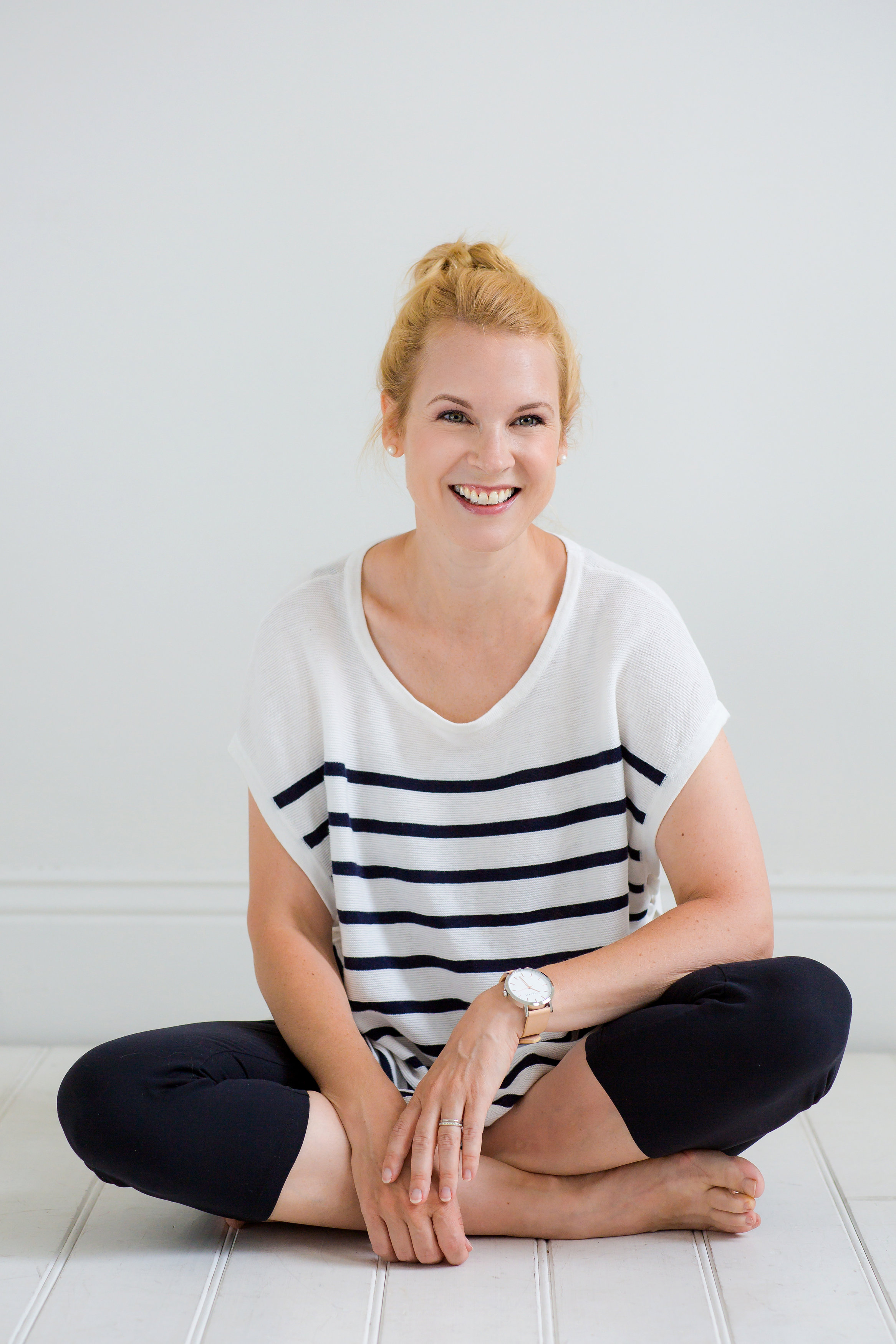Grains… What do you think of them?
Do you know your Farro from your Freekeh and Sorghum from your Teff??
And most importantly, do you like and use them?
In my pantry are four types of grains, the most common and ‘easiest to love’ I would argue: oats (rolled and quick), couscous (wholemeal wheat and spelt), rice (jasmin and arborio) and quinoa.
This mix is good for me because it means I consume a variety of whole grain nutrients while keeping it simple and quick. Couscous is not technically a grain itself, it is a process where durum wheat semolina is rolled with water to form little grains. It is most commonly wheat, but can also be found made from spelt.
Why whole grains?
They are:
- high in fibre
- great source of carbohydrates
- significant source of protein
- good source of many minerals
- good source of antioxidants and phytochemicals
The important thing here is that whole grains contain all three layers of the grain: bran, endosperm and germ. When grains are refined the bran and germ layers are removed, which means they loose a lot of their nutritional benefits.
What other grains are there?
Apart from those mentioned above… I just haven’t warmed to any other. But the real question is: Have I tried them all?!
Often I walk around the isles in my local bulk food shop and wonder about the other grains. There. Are. So. Many.
So I figured if I wanted to occasionally make something different, I better get my head around how these are cooked! Because the simpler we make it for ourselves, the easier it is to introduce new things (and more nutrients) into our diet.
Below is a list of all the grains I could think of. I already know I hate pearl barley and millet, haha. But there are so many others to try!! If you don’t want to make them as a side or salad base, you can add them to soups and stews. Some of them can be bought puffed for mueslis too.
I would love to know which ones are totally foreign to you and which ones you are keen to try! Also let me know if I missed any or if you cook them differently. These cooking instructions are mostly based on research, not experience yet, so I’d love some advice.
Much love,
Katrine x
Amaranth, 1 cup
Water: 2 cups
Method: Bring to boil, cook for 15-20 mins.
Makes: 2 1/2 cups
Barley (pearl), 1 cup
Water: 3 cups
Method: Bring to boil, cover with lid, lower heat and cook for 30-45 mins.
Makes: 3 1/2 cups
Barley (hulled), 1 cup
Water: 3 cups
Method: Bring to boil, cover with lid, lower heat and cook for 90 mins.
Makes:
Buckwheat, 1 cup
Water: 2 cups
Method: Bring to boil, cook for 20 mins.
Makes: 4 cups
Bulgur, 1 cup
Water: 2 cups
Method: Bring to boil, cook for 10-15 mins.
Makes: 3 cups
Cornmeal, 1 cup
Water: 4 cups
Method: Bring to boil, lower heat, cook for 45-60 mins CHECK 25-30 mins
Makes: 2 1/2 cups
Couscous, 1 cup
Water: until it’s covered
Method: In a bowl, cover couscous with boiling water from a kettle. Cover the bowl with wrap and let it rest for a few minutes. Fluff it with a fork.
Makes: 2 1/2 cups
Einkorn (yound small Farro), 1 cup
Water: 2 cups
Method: Bring water to boil, add Einkorn and simmer for 25-30 mins
Makes:
Farro, 1 cup
Water: 2 1/2 cups
Method: Bring to boil, cook for 25-40 mins
Makes: 3 cups
Freekeh (whole), 1 cup
Water: 4 cups
Method: Bring to boil, reduce heat and simmer for 35-40 mins.
Makes: 3 cups
Freekeh (cracked), 1 cup
Water: 2 1/2 cups
Method: Bring to boil, reduce heat and simmer for 20-25 mins.
Makes: 2 cups
Grünkern, 1 cup
Water: 2 cups
Method: Wash and soak the grünkern overnight. Bring to boil in the soaking water on high heat for 10 mins, then reduce heat and simmer for 10-15 mins.
Makes:
Kamut, 1 cup
Water: 4 cups
Method: Soak overnight, drain soaking water. Cook in fresh water for 45-60 mins.
Makes: 3 cups
Millet, 1 cup
Water: 2 1/2 cups
Method: Rinse millet. Dry roast until toasted and fragrant. Add boiling water and cover with lid. Lower heat and cook for 20-30 mins.
Makes: 4 cups
Oats (rolled) 1 cup
Water: 2 cups
Method: Bring to boil, cover with lid, lower heat and cook for 10-20 mins. Stir frequently.
Makes:
Oats (steel cut), 1 cup
Water: 4 cups
Method: Bring to boil, cover with lid, lower heat and cook for 30 mins. Stir frequently.
Makes: 3 cups
Quinoa, 1 cup
Water: 2 cups
Method: Rinse quinoa well. Dry roast in a pot until toasted and fragrant. Add boiling water and cover with lid. Lower heat and cook for 15-20 mins (Check until it’s cooked to your liking).
Makes:
Rice (white), 1 cup
Water: 1 1/3 cups
Method: Bring to boil, cover with lid, lower heat and cook for 15 mins. Turn heat off and let it rest for 5 mins with lid on.
Makes:
Rice (brown), 1 cup
Water: 2 1/2 cups
Method: Bring to boil, cover with lid, lower heat and cook for 30 mins. Turn heat off and let it rest for 10-15mins with lid on.
Makes:
Rice (wild), 1 cup
Water: 4 cups
Method: Bring to boil, cover with lid, lower heat and cook for 45-60 mins or until rice splits open. Pour into a sieve to drain excess water.
Makes:
Rye, 1 cup
Water: 4 cups
Method: Soak overnight, drain soaking water. Cook in fresh water for 45-60 mins.
Makes: 3 cups
Sorghum, 1 cup
Water: 4 cups
Method: Cook for 25-40 mins
Makes: 3 cups
Spelt berries, 1 cup
Water: 4 cups
Method: Soak overnight, drain soaking water. Cook in fresh water for 45-60 mins.
Makes: 3 cups
Teff, 1 cup
Water: 3 cups
Method: Cook for 20 mins
Makes: 2 1/2 cups
Triticale, 1 cup
Water: 3 cups
Method: Simmer covered for 1 hour, 10 mins.
Makes: 2 1/2 cups
Wheat (berries), 1 cup
Water: 4 cups
Method: Soak overnight, drain soaking water. Cook in fresh water for 45-60 mins.
Makes: 2 1/2 cups
Wheat (cracked), 1 cup
Water: 2 cups
Method: Simmer covered for 15 mins.
Makes: 2 cups


